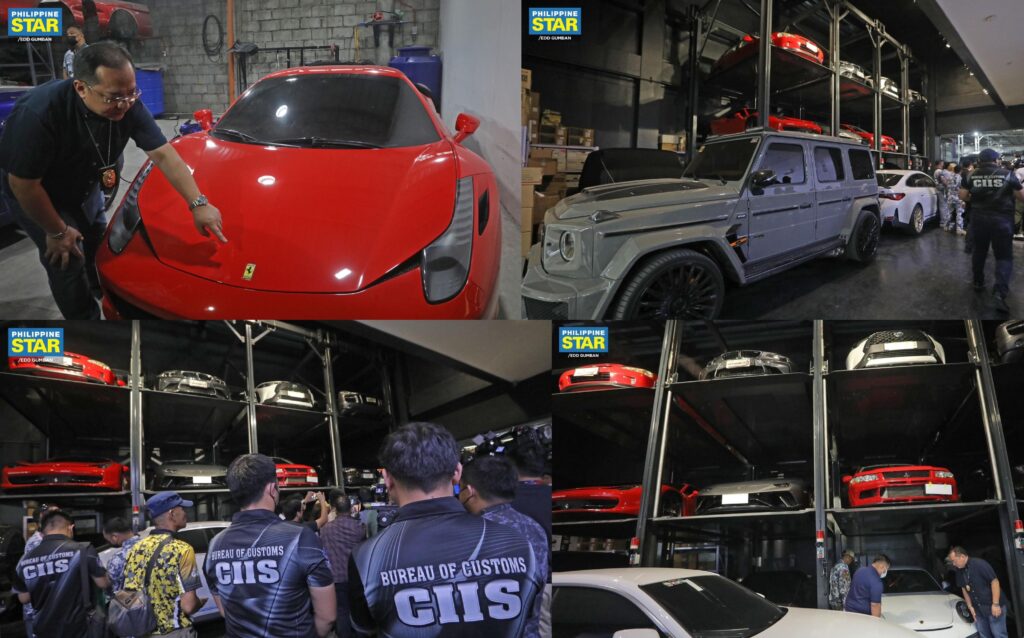Ghana Police Car Theft Raid Uncovers 43 Stolen Rolls-Royce and Luxury Vehicles

Firstly, Ghana Police car theft investigations escalated when CID uncovered 43 stolen luxury vehicles between January and July 2025.
Next, CID collaborated with Customs, Interpol, Digipol, and the FBI to track and recover high-end vehicles smuggled into Ghana.
Then, authorities traced stolen Rolls-Royce, Porsche, Benz, Audi, and BMW models to eight countries across Europe and North America.
Meanwhile, vehicles came from Canada, Germany, France, Spain, Belgium, Netherlands, Italy, and the United States.
Simultaneously, COP Lydia Yaako Donkor addressed the media, outlining CID’s expanded intelligence-sharing network and cross-border collaborations.
Moreover, she confirmed that investigations into all 43 vehicles had concluded.
So far, courts ordered 18 cars to be returned to their countries.
Already, eight vehicles have been repatriated.
Currently, 10 await return, while 25 cases remain active in court.
Afterward, COP Donkor warned the public against assuming customs clearance equals legal ownership.
Instead, she urged buyers to request legitimate proof of origin and purchase.
Consequently, she highlighted that many importers failed to produce valid documents from vehicle origin countries.
Thus, CID continues verifying each seized car individually through detailed investigations and legal checks.
Additionally, CID launched a specialized task force targeting stolen imports through intelligence-led operations.
Recently, the unit seized six more vehicles stolen from Canada.
Notably, the impounded cars included four Toyota Tundras, a RAV4, and a Range Rover.
Furthermore, agents exposed tactics used by syndicates to exploit Ghana’s borders and financial systems.
Therefore, some criminals rented vehicles using fake identities before illegally exporting them.
Others used fraudulent credit cards or tampered with GPS systems before shipment.
At times, they exploited romance fraud and extortion to fund these operations.
Ultimately, they launder illicit proceeds through luxury vehicle imports.
Meanwhile, innocent Ghanaians have unknowingly purchased stolen cars, unaware of their criminal origins.
Understandably, this leaves many vulnerable to legal risk and asset seizure.
Hence, COP Donkor urged potential buyers to thoroughly verify vehicle history before purchase.
Also, she warned against relying solely on customs documentation.
Now, awareness becomes the strongest weapon against car theft syndicates.
Instead of rushing deals, buyers should demand international proof of vehicle purchase.
Because stolen cars fund bigger crimes like money laundering, action becomes everyone’s duty.
For this reason, public vigilance remains critical to disrupting these cross-border theft rings.
Soon, CID will introduce new public awareness campaigns to educate consumers on safe vehicle import practices.
Accordingly, these campaigns will guide citizens in identifying red flags and verifying ownership records.
Until then, the CID vows to intensify investigations, partner with foreign agencies, and protect unsuspecting citizens.
So far, the crackdown has restored confidence in Ghana’s border controls and criminal justice cooperation.
Indeed, Ghana Police car theft operations prove that global crime networks can be defeated with unity, technology, and unrelenting vigilance.
Thus, the fight continues—not just at borders, but also in showrooms, auctions, and private deals.
Therefore, before buying any imported car, ask more questions, demand more proof, and protect yourself from criminal consequences.




